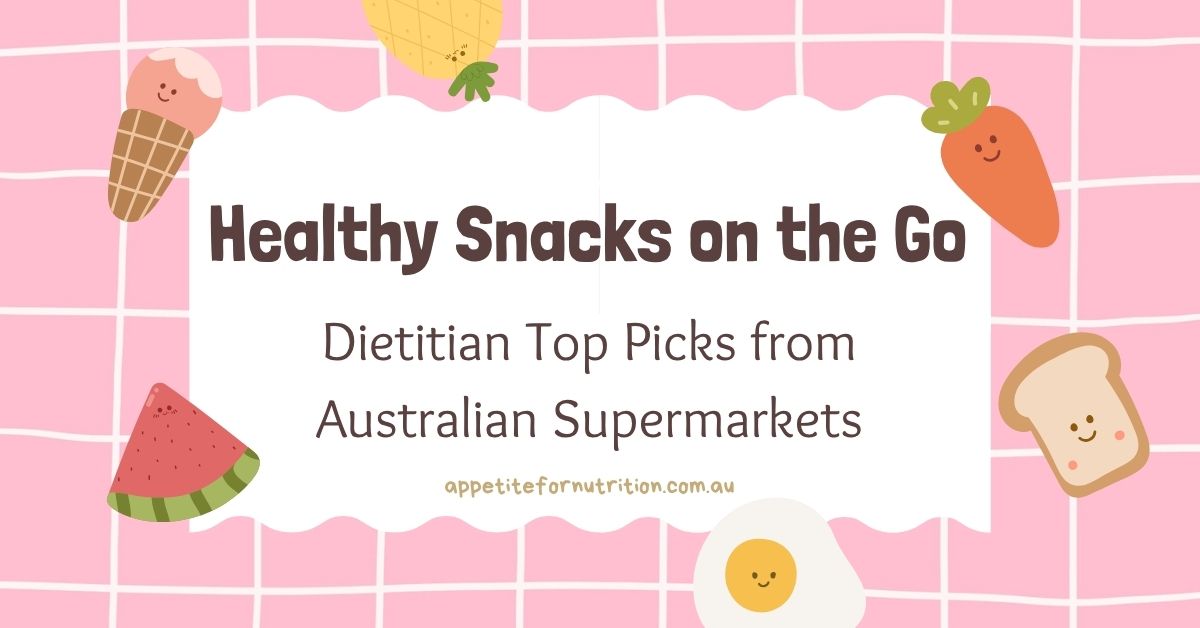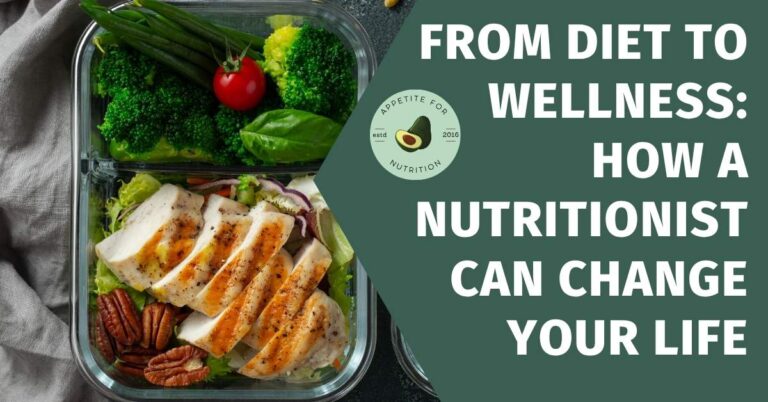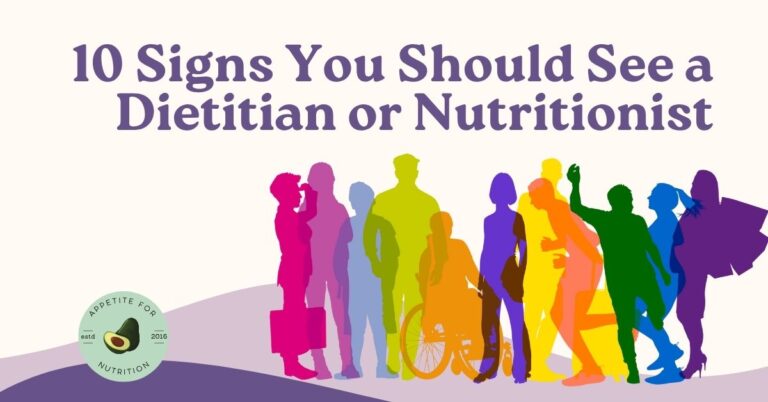
Healthy Snacks on the Go: Dietitian Top Picks from Australian Supermarkets
Why Smart Snacking Matters
When chosen well, healthy snacks from the supermarket can help manage hunger, support energy levels, and prevent overeating — especially on busy days.
As dietitians, we’re often asked:
“What are the healthiest snacks I can buy from Coles, Woolworths, or Aldi?”
The good news? You don’t need expensive health foods or complicated recipes.
Below, we share dietitian-approved supermarket snacks that are practical, affordable, and suitable for busy lifestyles, NDIS participants, and anyone wanting to eat well without stress.
If you’re looking for broader snack ideas beyond the supermarket, see our full guide to healthy snacks.
Want Personalised Snack Support?
Choosing snacks can feel overwhelming — especially with medical conditions, disability support needs, or specific health goals.
Our NDIS-registered dietitians can help tailor snack choices as part of a personalised nutrition plan.
See how our dietitians can help you!
The Role of Snacks in a Healthy Diet
When chosen thoughtfully, supermarket snacks can play an important role in a healthy eating pattern — particularly when cooking isn’t practical or energy levels fluctuate.
Snacks can:
Keep energy levels stable throughout the day
Prevent overeating at mealtimes
Support blood sugar management
Provide additional nutrients for people with disability or medical needs
When choosing snacks from the supermarket, prioritise options that are high in fibre and protein, low in added sugar, and made from recognisable ingredients.
🔗 Related reading: 10 foods with hidden sugars you weren’t aware of
Top Healthy Supermarket Snacks in Australia
Below are dietitian-approved options that balance taste, nutrition, and convenience. All are available from Coles, Woolworths, or Aldi.
1. Roasted Chickpeas
(e.g., The Happy Snack Company)
High in protein and fibre, naturally gluten-free and nut-free — a great crunch alternative to chips.
2. Mini Greek Yoghurt Tubs
(e.g., Chobani, Jalna, YoPro)
Rich in calcium and probiotics for gut health. Choose low-sugar, high-protein varieties.
3. Wholegrain Rice Cakes + Nut or Seed Butter
Pair with peanut, almond, or sunflower seed butter for a balanced carb + protein snack that sustains energy.
4. Air-Popped Popcorn
(e.g., Cobs Lightly Salted)
A wholegrain option naturally low in calories and perfect for mindful snacking.
5. Fresh Fruit + Cheese Cubes
Combines fibre, protein, and calcium for lasting fullness.
6. Low-Sugar Snack Bars
(e.g., Food for Health, Tasti Protein, Blue Dinosaur Bites)
Look for ≥5 g protein and <10 g sugar per bar.
💡 Dietitian Tip:
If you regularly rely on snack bars or packaged snacks, a dietitian can help you choose options that better support your energy, appetite, and health goals.
7. Boiled Eggs
A portable protein powerhouse, rich in choline and healthy fats.
8. Edamame Snack Packs
Available frozen or fresh; high in plant protein and fibre. Steam lightly and season with sea salt.
9. Tuna & Crackers Packs
(e.g., John West Tuna Snack Kits)
Ready to eat, rich in omega-3 fats and protein — no refrigeration required.
10. Veggie Sticks + Hummus
Pair pre-cut carrots, cucumbers, or capsicum with hummus or tzatziki for fibre and plant-based protein.
11. Baked Fava Bean or Lentil Snacks
(e.g., Harvest Snaps, Calbee Lentil Bites)
Higher in fibre than chips, with a satisfying crunch.
12. Cheese & Wholegrain Crackers Packs
(e.g., Le Snack Lite, Babybel + Ryvita)
Good balance of protein, calcium, and wholegrains for adults and kids.
13. DIY Trail Mix
Combine unsalted nuts, pumpkin seeds, and a few dried fruits — portion into small containers to avoid over-snacking.
14. Bliss Balls
(e.g., Bounce Balls, Keep It Cleaner)
Choose versions with no added sugar and whole ingredients like oats and nuts.
15. Unsweetened Fruit Pouches
(e.g., Macro Organic Pouches)
Perfect for soft diets or children — aim for 100 % fruit, no added sugar.
What to Look For on the Label
| Nutrient | Dietitian Tip |
|---|---|
| Fibre | Aim for ≥ 3 g per serve |
| Protein | ≥ 5 g helps you stay full |
| Sugar | Under 10 g per serve |
| Ingredients | Choose recognisable, whole foods |
For evidence-based nutrition guidance, the Australian Dietary Guidelines recommend choosing snacks that balance protein, fibre, and minimally processed ingredients.
🔗 Learn more: Can you trust Nutrition Claims on Food Packaging?
Final Tips from Our Dietitians
Keep a snack station in your fridge or pantry to reduce impulse eating.
Use small containers or lunchboxes for portion control.
Stay hydrated — thirst often feels like hunger.
Add snacks to your weekly grocery plan so you’re prepared.
🔗 See how snacks can support your NDIS nutrition plan
Need Help with Healthy Eating on the NDIS?
At Appetite for Nutrition, our NDIS-registered dietitians support participants across Melbourne — and Australia-wide via telehealth — with:
Personalised nutrition plans
Supermarket shopping guides
Meal planning for health goals or disability support needs
👉 Book a Consultation with an NDIS Dietitian Today
Frequency Asked Questions
Find quick answers to common questions
Our team of NDIS-registered dietitians helps clients make practical, evidence-based food decisions that fit their goals, lifestyle, and budget — whether shopping at Coles, Woolworths, Aldi, or online.
Smart snacking means choosing foods that satisfy hunger, stabilise energy, and contribute valuable nutrients between meals. The best snacks are high in fibre and protein, low in added sugars, and made from whole, recognisable ingredients. These options help manage appetite, support blood sugar balance, and provide steady energy throughout the day.
Snacks fill nutritional gaps and keep energy levels consistent, especially for people with higher needs, busy routines, or medical conditions. They can help prevent overeating at main meals, maintain blood sugar balance, and boost intake of nutrients such as calcium, protein, and fibre.
Some dietitian-approved options available from Coles, Woolworths, and Aldi include:
Roasted chickpeas or lentil snacks for plant protein and fibre
Greek yoghurt tubs for calcium and probiotics
Wholegrain rice cakes with nut or seed butter for sustained energy
Fresh fruit with cheese cubes for a balance of carbs, protein, and calcium
Boiled eggs, edamame, or tuna packs for convenient protein sources
Air-popped popcorn or veggie sticks with hummus for wholefood crunch
When reading labels, look for at least 5 grams of protein and no more than 10 grams of sugar per bar. Choose those with whole ingredients such as nuts, seeds, oats, or dried fruit rather than refined flours and syrups. Avoid bars listing sugar, glucose, or rice malt syrup among the first few ingredients.
Not necessarily. Many convenient supermarket snacks are now formulated with better ingredients and balanced nutrition. The key is reading the label, comparing options, and watching portion size. A packaged snack can be a healthy choice if it contains minimal added sugar, quality protein, and wholefood ingredients.
Most people benefit from one to two snacks daily, typically mid-morning and mid-afternoon. The ideal frequency depends on your activity level, appetite, and overall diet. Snacks should complement main meals, not replace them.
Use small containers or lunchboxes to pre-portion snacks rather than eating straight from the packet. Keeping a designated “snack station” in the fridge or pantry helps prevent impulsive eating and encourages balanced choices.
NDIS participants and individuals with special nutrition requirements may benefit from soft-textured options like unsweetened fruit pouches, yoghurt, or smooth nut butters. Others may need high-protein, easy-to-grab snacks such as boiled eggs, roasted chickpeas, or mini cheese and cracker packs. A dietitian can tailor snack recommendations to meet mobility, energy, or medical needs.
If you have difficulty maintaining energy, managing appetite, or meeting dietary needs due to health conditions, disability, or busy routines, consulting a registered dietitian can help. Appetite for Nutrition’s NDIS-accredited dietitians offer personalised nutrition plans, supermarket shopping guides, and telehealth consultations across Australia.
Book a consultation with an Dietitian at Appetite for Nutrition to receive tailored snack ideas, meal planning support, and practical supermarket strategies that fit your goals and lifestyle.
Fibre: aim for 3 grams or more per serve
Protein: at least 5 grams per serve helps you stay full
Sugar: less than 10 grams per serve
Ingredients: select items made with whole, recognisable foods rather than additives or artificial sweeteners



